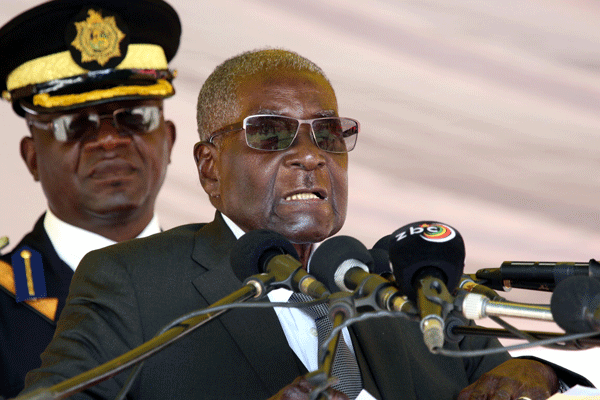
By Tim Middleton
Most educated people will know that Nelson Mandela once famously said that: “Education is the most powerful weapon which you can use to change the world.” He made it his mantra to help his people gain the education that they deserved.
Tony Blair, the British prime minister in the late 20th century, took a similar stance when he announced at his party’s conference in 1996: “Ask me my three main priorities for government, and I tell you: education, education, education.” Our very own former president Robert Mugabe, himself a teacher by profession, repeatedly emphasised how important he believed education was, publicly declaring that education receives the highest budget. Furthermore, the Constitution of Zimbabwe, section 27 declares that “The State must take all practical measures to promote (a) free and compulsory basic education for children”, while section 75, under the heading of ‘Right to education’ pronounces that “Every citizen and permanent resident of Zimbabwe has a right to (a) a basic state-funded education, including adult basic education.” Education is paramount; education is powerful; education is promotional; education is pivotal.
However, there is a problem that we should not ignore and which politicians perhaps have overlooked in their zeal to be elected. It took another political leader to define it and another international legend to unpack it. A British prime minister of an earlier era, David Lloyd George, once succinctly and insightfully stated that, “Education without God makes clever devils.” For those who do not believe in God, we can still take the concept and re-phrase it thus: “Education without morals makes smart criminals.” We can put that alongside the familiar statement attributed to Mahatma Gandhi concerning the seven things that he believed would destroy us: “Wealth without work, Pleasure without conscience, Knowledge without character, Commerce without morality, Science without humanity, Religion without sacrifice, Politics without principle.”
Interestingly, former president Mugabe, is quoted (on Pinterest) as posing a very relevant question: “How do you convince the upcoming generation that education is key to success when we are surrounded by poor graduates and rich criminals?” Many people like to argue that poverty and ignorance lead to criminality, that it is only the uneducated who commit crimes, yet we do not need to look far in the world to realise that the educated also commit crimes (but may just be slightly better at covering it up). Many educated people have used their education to their great advantage.
What these well-educated people who attained positions of power were not saying was that education can simply enable educated people to make a killing, both literally in some cases and financially in others (sometimes the one through the other). Through their education, such educated people can learn to know the system and therefore to know how to beat the system. They can confuse, flatter and deceive others who are less well-educated by big words, extensive arguments, deliberate falsification, effective omissions. They can use their education to justify their behaviour, to reward their smartness, to hide their subterfuge.
Many schools in their logo or vision have reference to knowledge being, or bringing, power — that has the same idea of education being a weapon to change the world. However, it should also be pointed out that while knowledge may bring power, it can also bring poverty, as the clever criminals exploit the poor and make them poorer. We may recall the proverb “A little knowledge is a dangerous thing”, which expresses the idea that a small amount of knowledge can mislead people into thinking that they are more expert than they really are, which in turn can lead to mistakes being made, but we seem to forget that a lot of knowledge can be a much more dangerous thing.
Education on its own is not enough. Education may well be a powerful weapon, but let us not forget that a weapon in the wrong hands is deadly and disastrous. We have to train people to use weapons safely, wisely, appropriately. The sad and ironic thing is that the educated people do not understand or accept that, missing the fact that the poor graduates may have morals while the rich criminals do not. What this country needs is not education, education, education, but morals, morals, morals. It needs education with morals, education with God. We do not need to be educated to know that.
- Chamisa under fire over US$120K donation
- Mavhunga puts DeMbare into Chibuku quarterfinals
- Pension funds bet on Cabora Bassa oilfields
- Councils defy govt fire tender directive
Keep Reading
l Tim Middleton is the executive director of the Association of Trust Schools [ATS]. The views expressed in this article, however, are solely those of the author in his private capacity and do not necessarily represent the views of the ATS.











